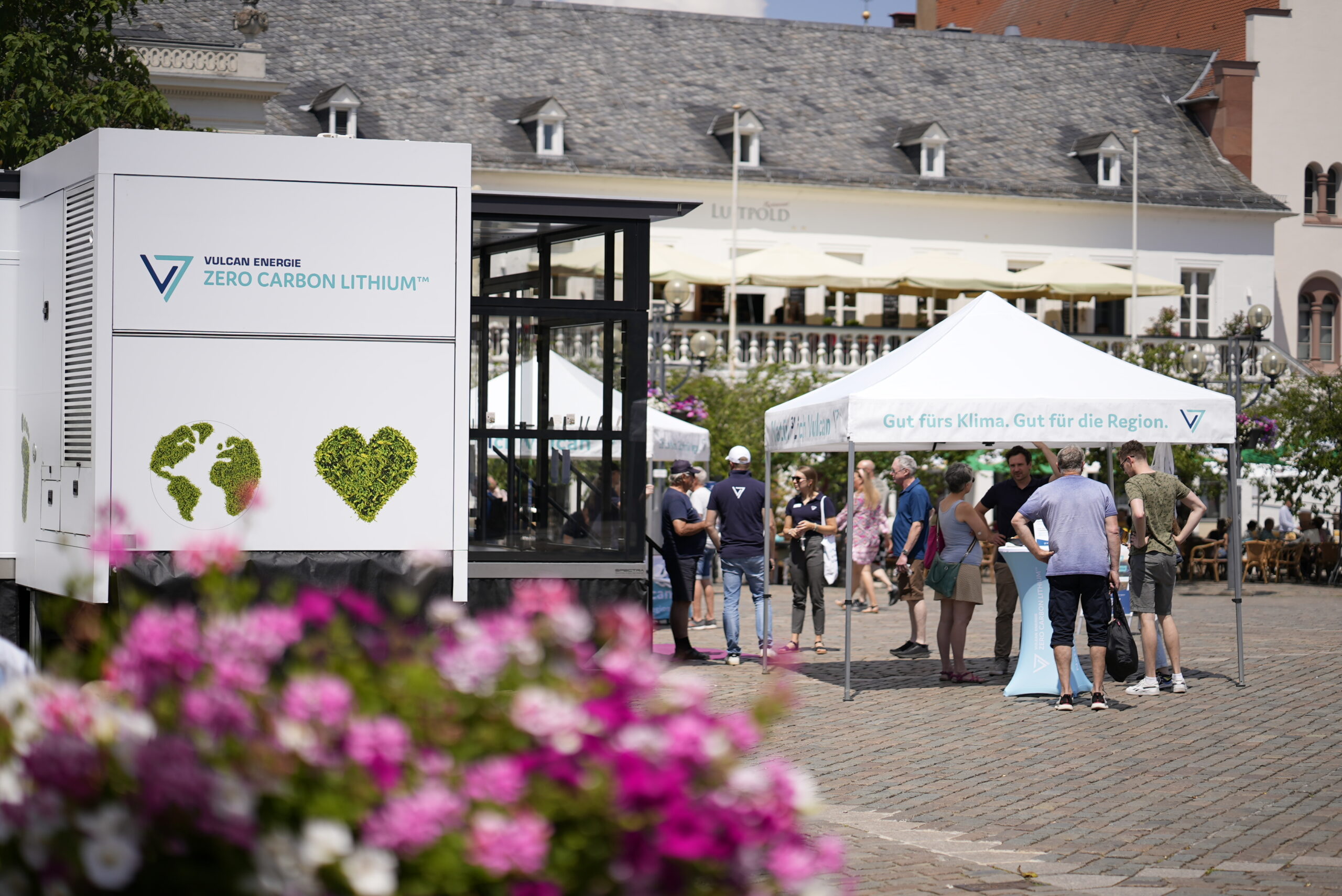Regierungspräsident Hilligardt presents permit for construction and operation of a lithium plant in Industriepark Höchst.
Regierungspräsident Prof. Dr. Jan Hilligardt officially hands over permit for large-scale lithium plant in Industriepark Höchst.
Today, Regierungspräsident Prof. Dr. Jan Hilligardt officially handed over the approval documents for the construction and operation of a Central Lithium Plant (CLP) at industrial scale to Thorsten Weimann and Carsten Bachg, the managing directors of Vulcan Energie Ressourcen GmbH. The handover took place at Vulcan’s Central Lithium Electrolysis Optimization Plant (CLEOP) in Industriepark Höchst, in the presence of Dr. Joachim Kreysing, Managing Director of Infraserv Höchst, the operating company of the industrial park. Since the beginning of the year, Vulcan has already been producing sustainable, domestically sourced lithium hydroxide monohydrate (LHM) at this facility in preparation for the launch of commercial lithium production.
The new lithium plant in the industrial park is a central component of Vulcan’s first two project phases, each of which aims to combine the extraction of climate-neutral lithium with renewable energy from deep geothermal sources. In the future, lithium chloride will be processed at the facility into lithium hydroxide monohydrate – a critical raw material for electric vehicle batteries – via an electrolysis process powered by green electricity. The lithium chloride used in this process will be extracted in a prior processing step at a combined geothermal and lithium facility (G-LEP) in the Landau industrial zone as part of the first project phase, “Lionheart.” The necessary construction permits for both the geothermal facility and the associated substation in Landau have already been granted. In the second phase of the project, lithium chloride production will expand into the Rhine-Neckar region.
Through commercial lithium production at the Frankfurt-Höchst and Landau sites, Vulcan plans to supply up to 24,000 tonnes of LHM annually in the first project phase. This quantity is sufficient to manufacture approximately 500,000 electric vehicle batteries. In the second project phase, the production and storage capacity of the CLP in Frankfurt-Höchst will be expanded.
In a statement issued by the Darmstadt Regional Council, Prof. Dr. Hilligardt commented:
“Achieving independence from international supply chains for future-critical raw materials is extremely important, which is why I am pleased to present this permit today. This project also sends a strong signal for the Industriepark Höchst location. It is a remarkable demonstration of the innovation and forward-thinking of companies in our Frankfurt/Rhine-Main metropolitan region.”
Dr. Joachim Kreysing, Managing Director of Infraserv Höchst, expressed pride that Vulcan Energy chose Industriepark Höchst to advance the development of a future technology:
“Germany’s economic transformation can only succeed with the innovative power of the chemical industry. Research and production sites like Industriepark Höchst are indispensable in this process. Our site offers ideal conditions for companies working on sustainable and innovative solutions.”
Thorsten Weimann, Managing Director and Chief Development Officer of Vulcan Energy, added:
“The permit for the construction and operation of our Central Lithium Plant in Industriepark Höchst is a crucial milestone for the realization of our Lionheart project. With production sites in Frankfurt-Höchst and Landau, Vulcan will establish a sustainable, domestic, and compact lithium supply chain over a total distance of just 130 kilometers, thereby supporting the EU’s goal of reducing critical raw material dependencies. Furthermore, by utilizing deep geothermal energy, we are making a key contribution to the regional energy transition.

